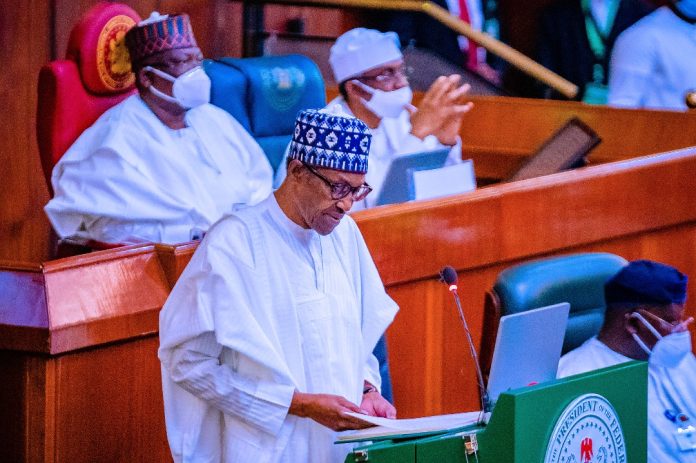The 5th edition of the Bodex Social Media Hangout (BSMH) unfolded in grand style, spotlighting the transformative power of social media in shaping narratives, fostering collaboration, and addressing societal challenges. With the theme “Social Media: The Influence, Power, and Impact,” the event attracted dignitaries, influencers, and stakeholders from across various sectors.
The event was moderated by the visionary Bodex Florence Hungbo, who guided the discussions with her signature poise and depth. Representing Governor Babajide Sanwo-Olu, Dr. OreOluwa Finnih, S.A. on SDG who delivered a keynote address on behalf of the governor, who was on an official trip.
The presence of Dr. OreOluwa Finnih highlighted the Lagos State Government’s commitment to leveraging social media as a tool for growth and societal well-being.
The Bodex Social Media Hangout is a distinguished media talk-shop fostering collaboration among social media users, professionals, and stakeholders. Focused on promoting responsible digital citizenship, BSMH aligns with the United Nations Sustainable Development Goals (SDG 3) to enhance the well-being of users and encourage cultural and societal advancements through social media.
The event emphasized the urgent need for Nigeria to address challenges such as fake news, cyberbullying, and online harassment.
A recent survey by The Guardian Nigeria revealed that 86% of Nigerians have encountered fake news, reflecting the pervasive influence of misinformation on social stability. Additionally, issues like mental health threats, cybercrime, and privacy concerns were discussed as critical challenges requiring immediate attention.
Through its sessions, the event showcased how social media has become a powerful tool for fostering awareness, driving economic growth, and promoting cultural exchange. Speakers and panelists also examined the darker side of digital platforms, including the rise of cyberbullying, mental health issues, and the spread of divisive content.
The event featured an impressive lineup of speakers and panelists who provided unique perspectives on the influence, power, and impact of social media:
Dotun Babatunde – The Impact of AI on Social Media
Dotun Babatunde explored the transformative role of Artificial Intelligence in the social media landscape, emphasizing its impact on the “attention economy.” He remarked, “We live in an attention economy, where human attention is a scarce commodity.” Babatunde explained how AI-driven algorithms prioritize engagement, often amplifying sensational content, but also creating opportunities for personalized and meaningful interactions. He encouraged users and creators to approach AI with a balanced perspective, recognizing both its potential and pitfalls.
A/Prof Tayo Popoola Ph.D. – Social Media: The Influence, Power, and Impact
Associate Professor Tayo Popoola from the Department of Mass Communication, University of Lagos, provided a thought-provoking analysis of social media’s role in society. He stated, “Social media is a double-edged sword: it empowers the voiceless but also creates spaces for misinformation and toxicity. The challenge lies in managing its influence responsibly.” Prof. Popoola underscored the importance of digital literacy in enabling users to harness the benefits of social media while mitigating its negative impacts.
Akin Olaniyan – Navigating the Social Media Age: Clout, Influence, and the Ethics of the Attention Economy
Akin Olaniyan delivered a compelling critique of clout-chasing in the social media era. He commented, “Give any moron a smartphone, and anything and everything becomes content. To such a fellow, clout-chasing is an end in itself, and the smartphone just makes it super-easy.” Reflecting on the quality of content creation, he added, “I am tempted to believe that their choice of subjects reflects their intellect, with the more empty-headed being the most daring.” Olaniyan called for ethical standards in digital content creation and urged society to value substance over virality.
ACP Olumuyiwa Adejobi – The Digital Detective: Solving Crimes in the Social Media Age
The Force Public Relations Officer, ACP Olumuyiwa Adejobi, showcased how social media has revolutionized law enforcement. He stated, “Social media is not just a platform for entertainment; it’s a valuable tool for law enforcement. By leveraging the power in the mass number of social media active users, we can solve more crimes and make our communities safer.” Adejobi shared examples of cases solved through digital platforms and emphasized the need for digital-savvy officers to maximize this potential.
In addition to the keynote speakers, the panelists brought fresh insights and diverse expertise to the event. Notable contributors included:
Olufemi Oguntamu, CEO of Penzaarville Africa.
Tomiwa Talabi, Founder/CEO of Lagos Life Influencer.
Dayo Oketola, Author, PR Consultant, and Former Editor at The Punch.
Iyabo Ojo, Actress, Filmmaker, and Influencer.
Hosted by celebrated media personality Frank Edoho, the event featured workshops, live sessions, and networking opportunities, creating an interactive atmosphere for attendees. Discussions covered a range of topics, from personal branding and content creation to the role of digital platforms in fostering community and enhancing security.
The panelists emphasized the power of social media in amplifying voices, holding leaders accountable, and fostering a sense of global connection. However, they also called attention to the darker aspects of the digital world, advocating for measures to combat negativity and promote a safer online environment.
Dr. OreOluwa Finnih reaffirmed the Lagos State Government’s vision of creating a digital ecosystem that promotes economic growth, cultural exchange, and societal well-being. The event’s mission remains clear: to foster collaboration, combat negativity, and shape Nigeria’s digital landscape for the better.
The Bodex Social Media Hangout remains a leading force in shaping Nigeria’s digital landscape.
In the words of Bodex Florence Hungbo: “Social media is the new oil well, Let us go fetch it.”



 Trending News4 years ago
Trending News4 years ago
 Others3 years ago
Others3 years ago
 Humanity3 years ago
Humanity3 years ago
 Others5 years ago
Others5 years ago
 Business9 months ago
Business9 months ago
 Business4 months ago
Business4 months ago











